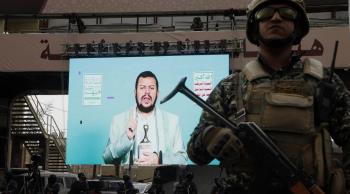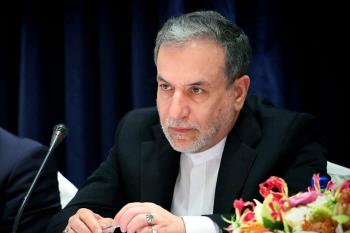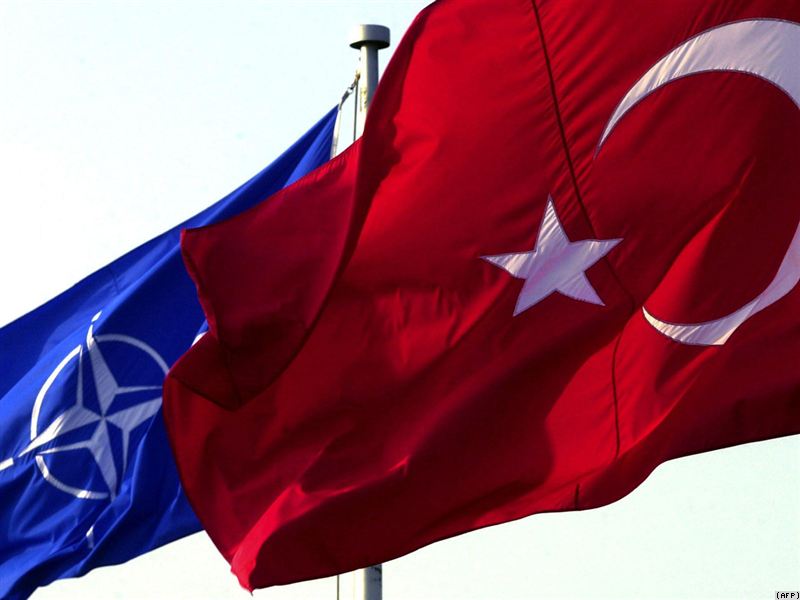Alwaght- Since the foundation of the North Atlantic Treaty Organization (NATO) on April 4th 1949, one of the most essential commitments made by the member states was concerned with the issue of collective security or collective defense. According to the Article 5 of NATO’s Charter the “collective defense means that an attack against one Ally is considered as an attack against all Allies” and it is necessary for all of the member states to counter the current threat based on the principle of the collective defense. Now and after shooting down the Russian SU-24 bomber on November 24th 2015, by the Turkish air force jets, in the academic and research institutes there is a deliberation raised about if the NATO’s “collective security principle” could be applied as a deterrent factor holding back Russia from launching any retaliatory attack against Turkey.
In the wake of downing its warplane by Turkey, Russia has reacted to Ankara by taking a couple of serious measures. Moscow’s steps included cutting off military cooperation, reducing economic ties, deploying the air defense missile systems in Syria just next to Turkey's territories, threatening to cut energy supply, specifically natural gas, to Ankara and carrying out seriously destructive attacks on Turkey-backed rebel forces in Syria. Also, the Russian President Vladimir Putin has repeatedly threatened Russia that would give retaliatory response to Turkey’s action. Following the incident, in preliminary reactions the NATO officials have voiced support to Turkey as the organization’s second largest military force, considering any threat against Ankara as a threat against each and every member of NATO. Such a NATO’s reaction has formally made a military clash between Ankara and Moscow to a large extent impossible, and this was because of existence of a mutual military deterrence between NATO and Russia.
Nevertheless, since the beginning of the crisis up to now many of the officials and government advisors of NATO members in different ways have expressed discontent with Turkey’s adventuring in West Asia region. The political leaders of many of the member states of NATO, including the Unites States, have given out their comments very cautiously on the present dispute between Ankara and Moscow. In addition, Ankara’s paradoxical policies concerning its alleged confrontation of ISIS terror group and terrorism in general have drawn the Western political leaders face to face with a heavy media and public opinions’ wave of criticism about Turkey as still being a NATO member. Presenting more deliberation on the case, three most significant problems faced by the NATO as a result of the Turkish adventures in the West Asian region would be shed light on.
1. Dragging NATO in an unwanted confrontation with Russia is the most important trouble Turkey has made for the military organization. During the past two years, NATO’s approach has been focused on not being involved actively in the crisis, instead concentrating on waging proxy wars through its backed regional forces like the Syrian and Iraqi Kurds as well as the Free Syrian Army, and other rebel forces. But after the escalation of tension between Ankara and Moscow following downing the Russian bomber, Moscow has deployed its cutting-edge missile defense systems just next to the Turkish soil in the neighboring Syrian territories. In fact, now Russia is closer to the Western Europe’s borders than any time before. As a result, the NATO member states have entered an unwanted confrontation with Russia, in a way that the US President Barack Obama has officially asked Britain, France and Germany to take part actively in the anti-ISIS collation front and participate in the collation’s airstrikes against the terror group. Therefore, it could be suggested that the US-led anti-ISIS military coalition is in process to transform in to a NATO’s military project. This would mean NATO’s engagement in an unwanted conflict which is largely spoken up against by the politicians and the public opinions of the military organization’s countries, because none of them is willing to get in to a war with the world’s second military and nuclear force, Russia. Thereby, they have begun to be concerned by Turkey’s behavior.
2. One of the issues making in the recent years the NATO members persistently laying blame on Moscow’s leaders is the Russian intervention in the internal affairs of its neighboring countries like Ukraine and Georgia, states which are considered as NATO’s allies. But now Turkey’s intervention in such countries as Syria and Iraq which takes place through supporting terrorism and breaching their sovereignty has turned out as a serious issue for NATO. Due to Ankara’s behavior, now NATO cannot bristle at Moscow for violating its neighbors’ sovereignty or intervening in to their domestic affairs while one of the organization’s members, namely Turkey, is working and coordinating with the world’s terror organizations, specifically ISIS. Pointing to Turkey’s backing for ISIS, the Western public opinions and media have disparaged Turkey as the major backer of the international terrorism for its links to the terror group’s members.
3. The disregard for democratic standards shown by Turkey is another trouble made by Ankara for NATO. According to its charter, NATO is defined as an organization supporting the peaceful and democratic governments. But the evidences prove that Turkey has yet to advance to the standards representing a democratic state. Turkey has ranked first for two years in a row for number of the jailed journalists, the figures released by Turkey’s Committee to Protect Journalists suggest, as globally it is known as the world’s biggest prison for the Journalists. Furthermore, during the past decades the crimes and massacres taken place during what is called Argenkon conspiracy have proven the undemocratic nature of the Turkish governments.
Generally, many of the analysts suggest that the US and its European allies should set on their agenda a process to decide on Turkey’s staying as member of the organization or being thrown out of the organization. Now we must wait to see NATO’s reaction to this rebellious, non-Christian and adventurous member. Could NATO keep Turkey from making troubles for the organization’s other members? Could NATO force Ankara in to stopping backing the terrorist group ISIS and considering democratization internally? Should the answers are negative, in the long run, undauntedly, the pressures to expel Turkey from NATO could mount as a serious choice, because President Erdogan and the Justice and Development Party have shown that they have their own considerations when facing the American and European positions, positions which in the future could seriously cast doubts on NATO members' support for Turkey and the organization’s collective defense principle.



























